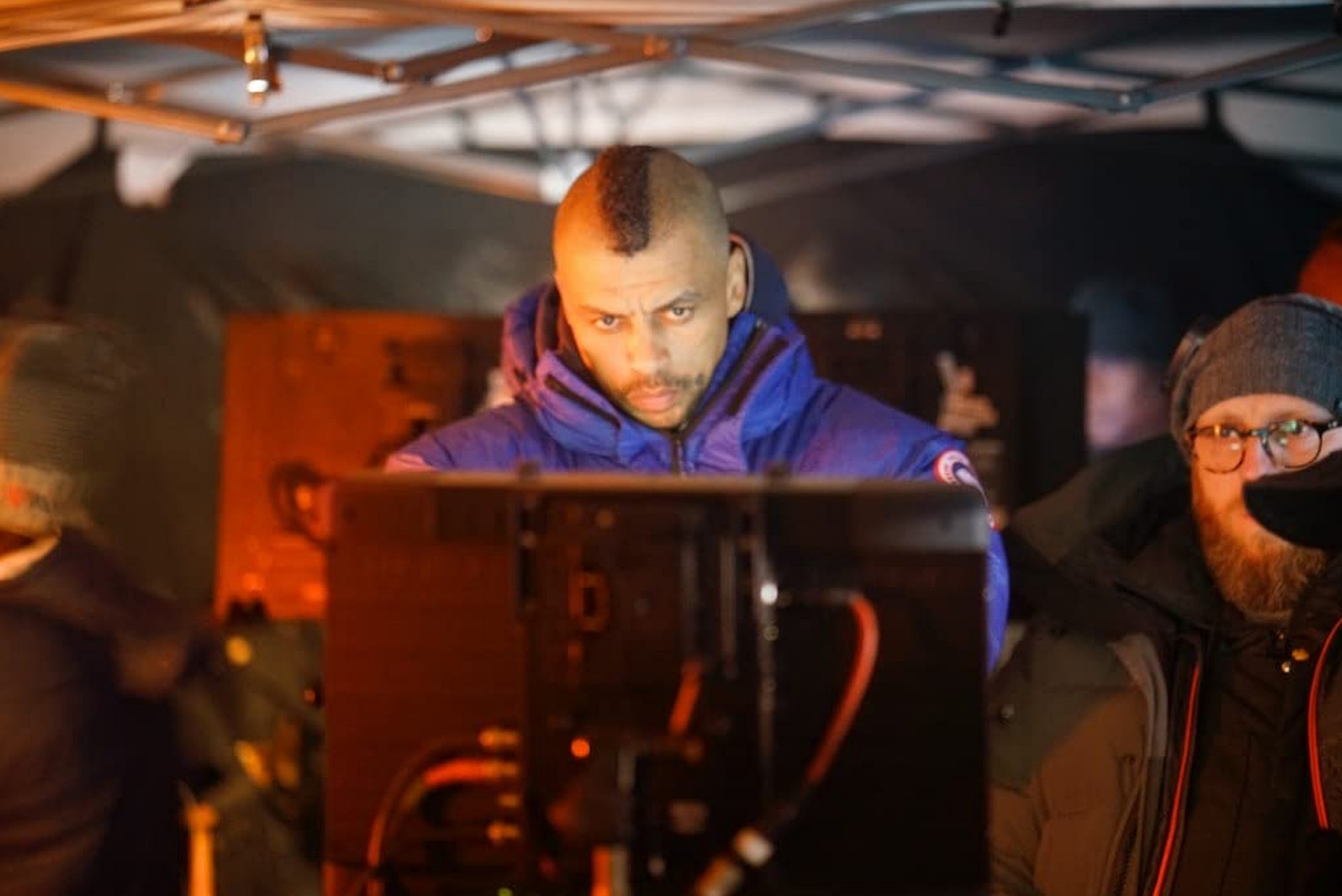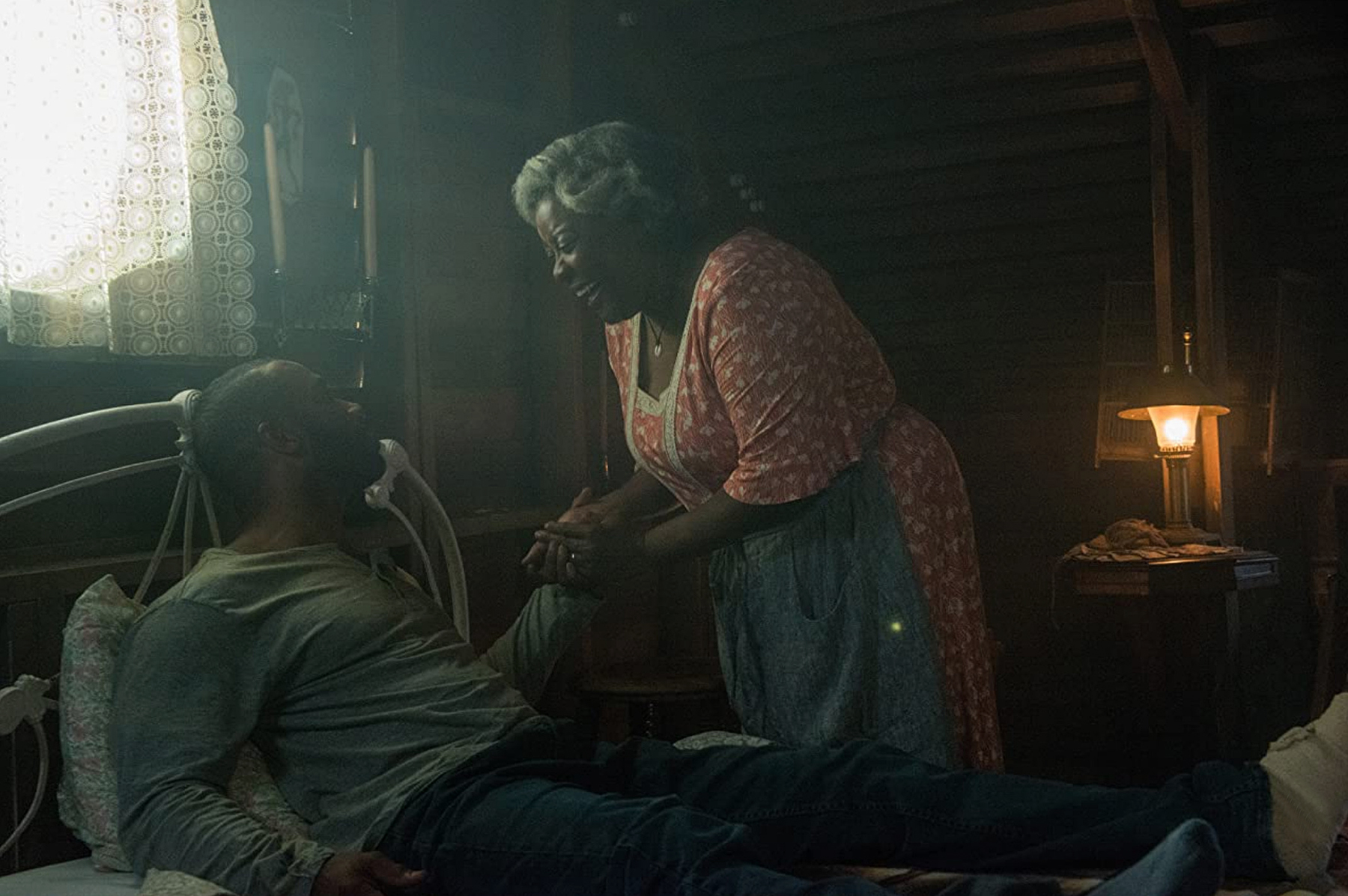
- Interviews
Mark Tonderai on “Spell”: “As a director, every story changes you”
British director and writer, Mark Tonderai, known for The Passage (2019), Locke & Key (2020), and The Five (2016) talks about his latest offering, Spell. This supernatural horror movie is about a man who wakes up after surviving an airplane crash to be found by an elderly couple who are seemingly kind until he finds their real and sinister intentions. Starring Omari Hardwicke and Loretta Devine, Tonderai’s exploration of Hoodoo (not be confused with Voodoo) offers something new in the horror genre.

What did you know about Hoodoo culture?
I didn’t know very much about it, although I knew about Voodoo. Then when I started to look into it, I realized that in Africa we have a thing called Juju and it has the same sort of rules. My mom used to practice Juju, and so I started to look at it from that point in, from an African perspective. I saw similarities between African rootwork (another word for Hoodoo or conjuring) and American rootwork.
And in layman’s terms, what is the difference between Voodoo and Hoodoo?
Well, Voodoo is African based, there’s a Priestess and it has gods and deities and is more ceremonial. It’s also practiced in Haiti as well as southern New Orleans. Hoodoo is more of a “backstreet” version. It’s all about using things that are in front of you, so it’s more of a kitchen sink version, it’s more American. It doesn’t have deities, it’s about using elements around you: muscles, hair, nails, things that you can touch and feel.
Having delved into this world, has it changed you in any way as far as habits or your way of thinking?
Well, as a director, every story changes you. I think that energy or that spirit that you give to every film has to be personal. In my case, I think it has to come from a place of pain. I know that’s why I make stories, it’s because there’s something that I’m trying to figure out about the world, about my life, and about my interaction with the world. If I take one of the subjects, for instance, the nature of rage, as a kid I used to get beat by my parents with sticks and belts. I was caned at school and I was caned at home, and I wonder what it’s done to me. In this film, Omari’s character has been abused as a kid, and what happened is that he’s submerged that rage. For me, I think that’s how Black men interact with the world. We have to survive.
Sounds like making this film was a cathartic experience for you?
Yeah, I think so. One of the ideas in the film is that in order to defeat the monster, you have to become the monster. But what does that do to you, once you touch darkness? Does it always leave its handprint on you? I think it does. I’ve got a terrible, terrible temper and I really had to control it over the years because I’ve lost friends, I’ve lost situations because of it, and now I’ve really got control over it. So, this movie was incredibly cathartic, and you really get what I mean when you watch the end. It’s a howl to the moon kind of scenario.
You started your career as an actor, right?
No, not really. I started it as a DJ. I am very lucky; I’ve never done a really normal job. For five years I used to put up posters in urinals, which I hated. It really almost broke me, but not because the job was beneath me – I will do anything, I’ll clean the streets if I have to, I don’t care, it was just the fact that I knew I wanted to be a filmmaker, but instead, I was in toilets putting up posters.
That’s quite a transition. How did you make that leap – from putting up posters in urinals to where you are now?
I joined the BBC when I was fresh out of college and I worked for Thames Radio. Then I got my own TV sketch show, then I did a film that got made, and then the film flopped. And if I am honest with you, it kind of really threw me. I realized that I felt entitled to this life. Suddenly, when everything was taken away, I realized that it was a privilege. So, I started again, but it was really tough. My wife and I were poor. Then she entered me in a competition, a writing program where I pitched my film, Hush, and I got paid to write the script. The film turned out to be a really expensive calling card for America. From that point, I was asked to pitch for a film called House at the End of the Street, which I did, and I won that commission. That changed my life. I moved to America. I did that film with a girl in it named Jennifer Lawrence. That helped a lot (laughs).
What do you hope audiences will take away from watching Spell?
Well, the first thing is to be entertained. It’s a suspenseful film, and it has a lot of suspenseful moments in it – it’s really Hitchcockian. I really want the audience to squirm and really have a good time watching it. And then if I’m lucky, they’ll pick up some of the themes that we mention in the film. The secular nature of rage is a big one. Our main character was abused as a boy by his father, and he’s tried everything he can to not be like his father, but then he realizes that he has to be like his father to get himself out of the situation. Also, I am really hoping that people can pick up on all of the different sub-textual racial strands that I was trying to talk about.